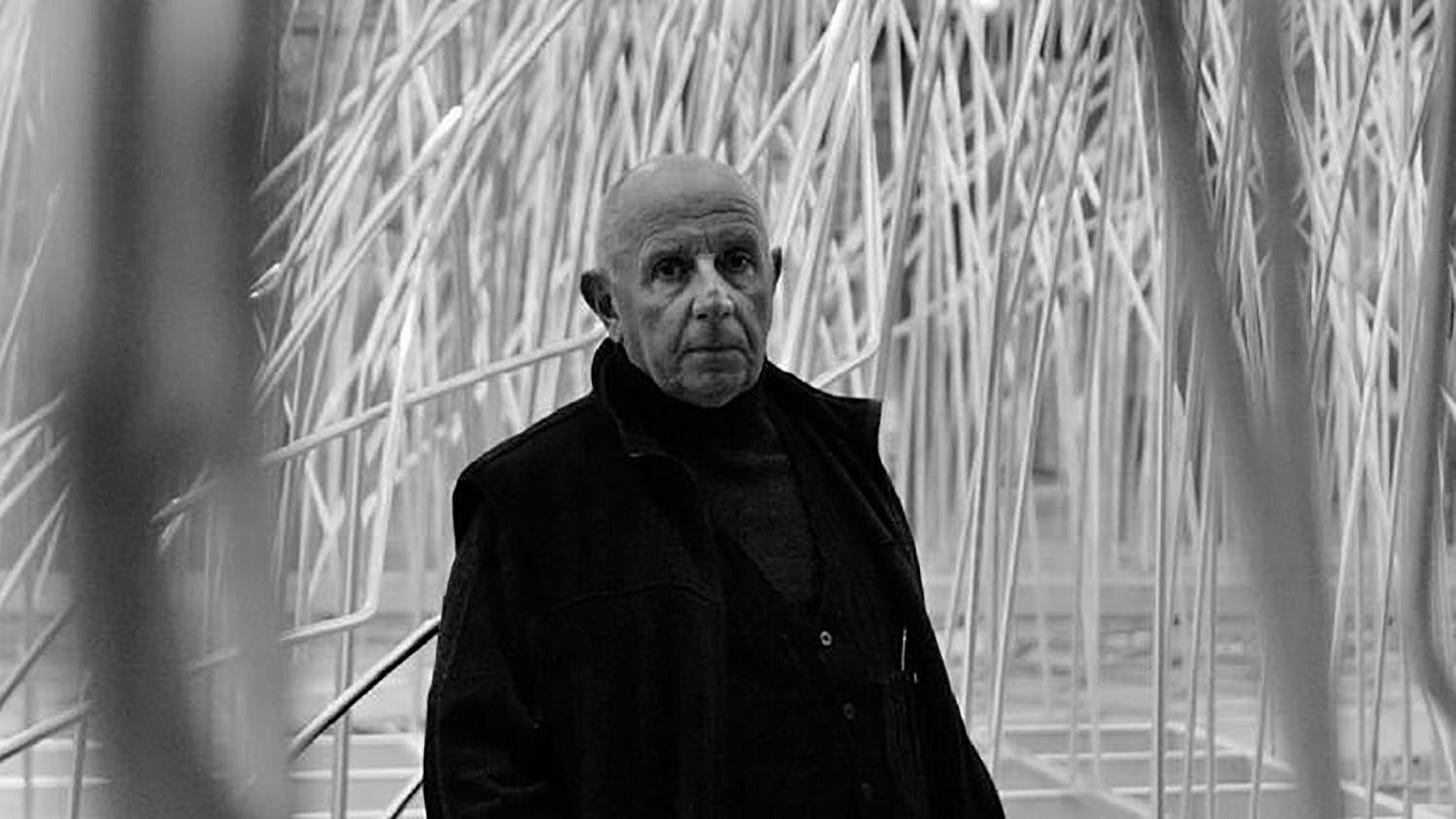Splitting the Streams
Dividing to be whole
Hello! It’s been a while.
This might be the first thing I’ve posted since getting home from Paris last year.
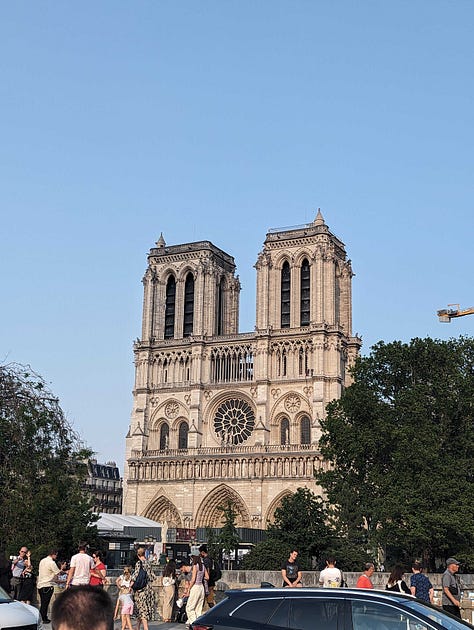




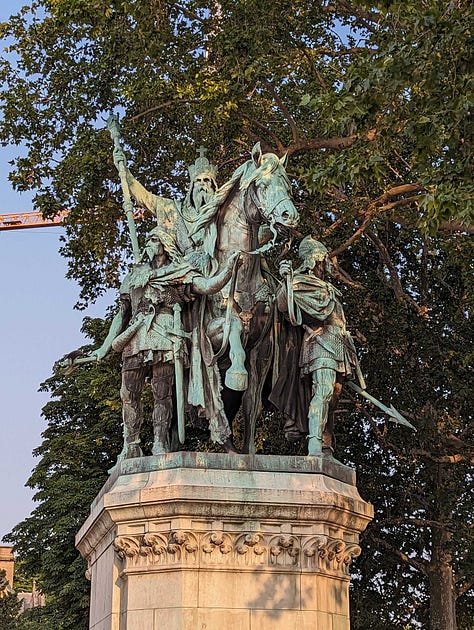

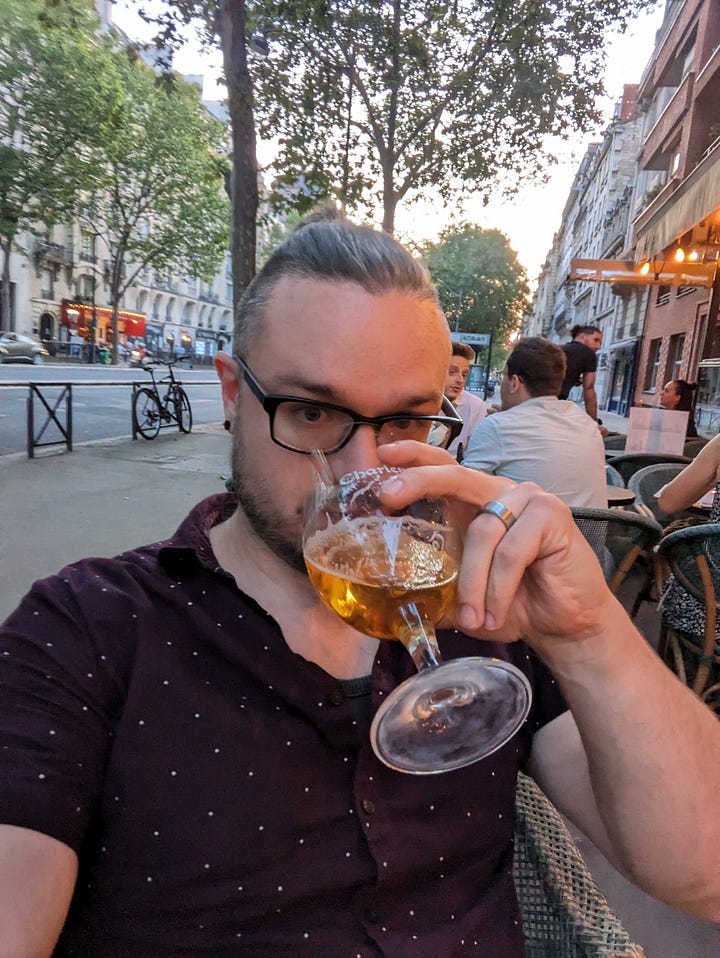
I realized, between diapers and potty trainings and working on a novel, that… Well, I didn’t have too much left to say. The tank felt dry. Which worried me for a while, but sometimes lying fallow with your thoughts is a good thing. It’s no surprise that those breaks are often foisted upon us by things that really do matter more, even if they’re only appreciable in hindsight.
Another semi-forced and unannounced hiatus let me collect myself a little and settle into the learning I’ve been doing over the past few years. Leaving academia, co-founding a non-profit, taking my fiction more seriously… All of it has churned up a wave of existential shifts that I’ve done my best to ride, but never really reckoned with.
Rather than apologize for the resulting months away from the “Send” button, I want to say thank you for sticking around. It was a very good season for me, and I hope it will lead to a very good season of new writing.
Which brings us to the header of…
“Splitting the streams.”
From its inception, Particular Weird was my effort at showing up as my “whole self.” A place for me to write about whatever interested me in as long or short (ok, never short) or experimental a form as I wanted. These efforts taught me a lot about how to thread together the disparate colonies of interest that make up my personality, and also how to make that weave intelligible for people who are not me.
Which is surprisingly hard—being yourself for the benefit of others and all.
If I’ve learned anything, it’s that communicating the things that matter requires deep attention to details we usually take for granted. This makes it easier for people who are not us latch onto our feelings and values. We easily assume the “givenness” of the things we care about, and that they will naturally be as fascinating to others as they are to us. It can honestly shock us when the things that make easy and obvious sense to us aren’t so obvious to other people (who, surprise, aren’t us). This is the weakness of the fire-hose-y, “whole-self” approach I tried to run on here for a while.
But if we can back out of these assumptions, and attend to things we love as though we’re doing so for the first time, we start seeing the details that even we missed. There’s always more to wonder about, worry at, and love in those things we think already have us in their grip. Realizing this is always a boon, a spur to our curiosity. And sometimes it tells us that the individual currents of our passion need their own attention and outlets.
So it is that I’ve decided to take the two “streams” of me that mean the most right now and give them their own attention. Hopefully to the betterment of my audience, which might also split—but I do hope you’ll stay in one piece.
First, let’s talk about Particular Weird.
The Future of the Weird
My vision for this ‘stack going forward is that I will primarily use it for writing-related thoughts and updates. Mostly fiction and pop culture stuff.
I’ll also be bringing in more of another thing I love: games. Mostly tabletop games. In my time away, I’ve really gotten lost in the weeds of roleplaying game design, the relationships between mechanics and narrative and experience. It’s struck me how many relevant writing lessons can be applied small-scale when designing an adventure for games like D&D, Call of Cthulhu, my new favorite Shadow of the Weird Wizard (eh? eh?) or the endlessly charming Brindlewood Bay. I am not prolific enough of a short story writer to post regular fiction here (I already go dark for months at a time while writing a novel), and essays on the craft never quite create the experiences they’re about. But you know what is a great, focused test-case for errant experiments with story and creativity? The humble one-shot tabletop adventure.
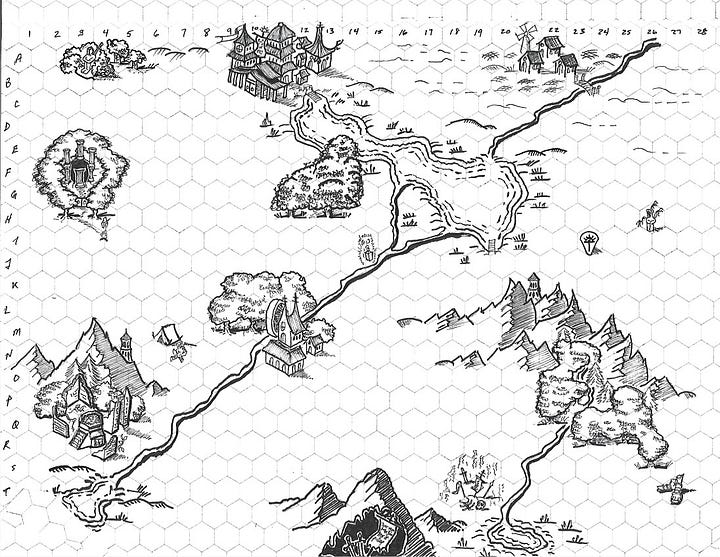

Such projects are deliciously concrete. They scratch an itch I’ve felt for a long time: how my creative journeys might be worlded in more bite-sized, hands-on formats that are more immediately relevant to my readers. They also show off the themes and style of my fiction in much smaller, more bounded ways than an 8000 word story or 80,000 word novel.
So expect me to offer more insights into what I’m reading and writing and learning, as well as little adventures and hand-drawn maps that try to put it all into practice. I’ve already got drafts of a low-level romp based on “The Adventure” from Bluey, another that ties together some “filthy” interpretations of the underworld across cultures, and a campaign setting derived from the novel I’m presently finishing. I’m very excited to share those and make something “useful” of my musings, even if it’s only useful to other nerds like me. (Which you are. You’re here.)
If all this sounds great to you, then I’m glad! Stick around! As for the other thing…
Religion for Losers
In an interview that I cannot for the life of me locate but that I’m very sure exists, the late French philosopher Paul Virilio was asked what difference his Christianity made to his thinking. “To me,” Virilio said, “Catholicism means that, in the end, we lose. We all die. … And then, we do something else.”
This quote’s been haunting me for a while. Since 2016, really. The election of Donald Trump to the US presidency was, for me, one more victory of worldly power over the essentially nonviolent message I believe my religion proclaims.
Then, as the 2020 election came and went, and January 6th became a new cultural touchstone for my country, I watched more and more people who claimed the same religious identity as me throw their lot in with a man and a narrative that couldn’t be further from the God I believe in. Being in my faith community felt like coming back to my hometown for the first time in 10 years and seeing all the old haunts and landmarks closed, dark, torn down, or replaced. I started to notice friends and media going out of their way to distinguish “Christians they knew” from an increasingly automatic equation: Christian = Evangelical = White Nationalist.
To those who buy into the total truth of this equation, I beg a little nuance. Christianity is not reducible to the “Christian nation” that has insisted on its own being-so for the last half-century. But in begging for nuance, I also have to admit that this equation is, today, in my neck of the woods, far more true than not true.
A bunch of you already know that my religion is incredibly important to me. I haven’t quite figured out how to let it “show up” in these pages over the last few years. I am shaped by a fraught tradition of beautiful, complex beliefs, and I need a place where I can both celebrate and grieve everything about that, especially as the meaning of it all rapidly changes in my society.
So I’m making space for that. At Religion for Losers, inspired by Virilio’s gnomic little quote, I’ll be thinking about what it means to call myself a Christian under a looming threat of fundamentalist Christian theocracy. I’ll be asking what it means for Christianity in America to “lose,” to “die” …and then to “do something else.” Something no longer motivated by cultural relevance or putting butts in pews, but by an embrace of powerlessness and a divine desire for justice, mercy, and conciliation amongst all people.
I’m grateful to do this work under the banner of unRival Network, where we accompany peacebuilders to nurture hope, inspire collaboration, and overcome destructive rivalries in a nonviolent struggle for justpeace. It’s a rare privilege, being empowered by my employer to be myself in a forum like this. But the groundwork I’m laying here also represents the overall mission of unRival to expand its community of regular people seeking ever-better ways of being together.
If you value this work and want to support it, please subscribe to Religion for Losers, and consider signing up for unRival’s communiques or making a small donation to keep us going. Every little bit helps.
See you all soon… At one stream or the other!

